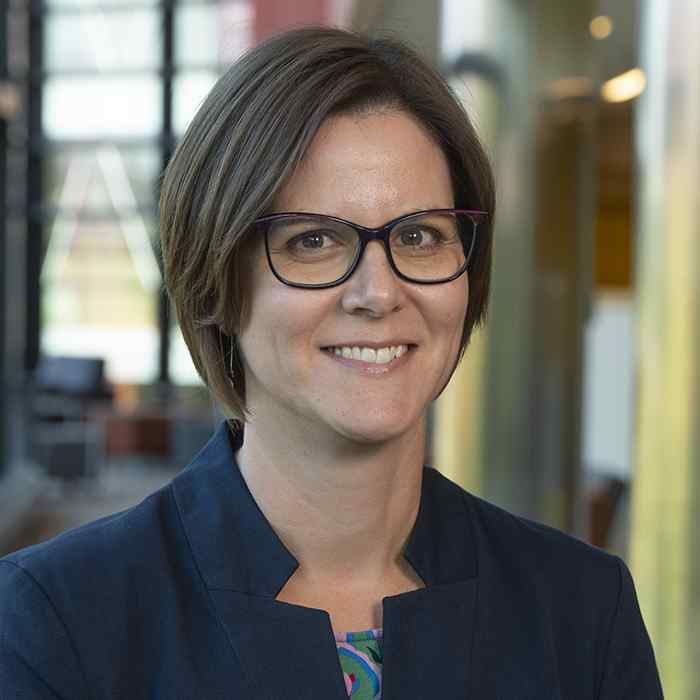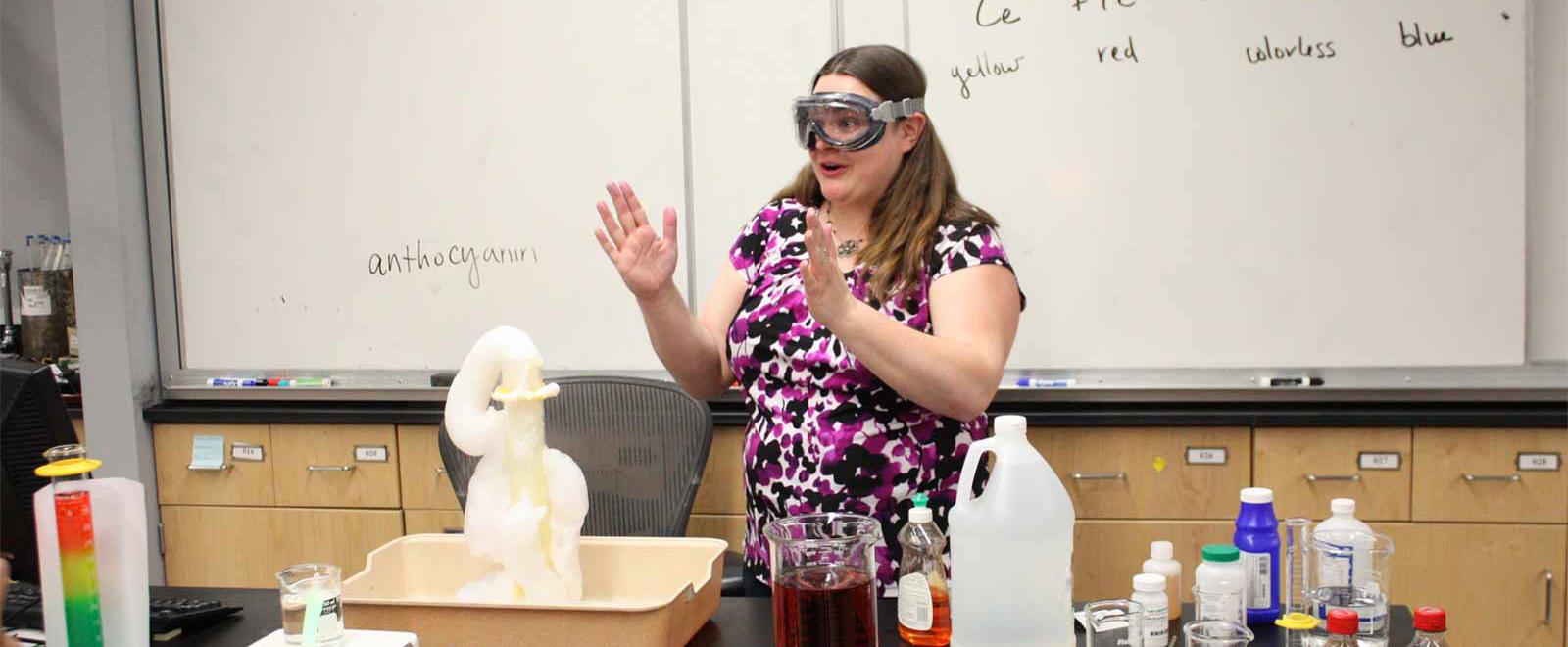Chemistry
Delivery Options
Popular Careers
Awards


Chemistry: Transfer Pathway, A.S.
The Associate of Science Chemistry Transfer Pathway offers students the opportunity to focus on gaining course credits that directly transfer to a Chemistry bachelor’s degree program at any one of the 7 universities within the Minnesota State system that offers the major.
The entire curriculum has been carefully designed to meet bachelor’s degree program requirements for transfer students planning initial study at a Minnesota State college. Students planning to transfer outside of the Minnesota State System are advised to consult with their intended transfer institution to determine transferability of the courses in this curriculum.
You will learn and apply central theories in chemistry, which apply to various disciplines, including health sciences, biological sciences and engineering. You will gain extensive laboratory experience utilizing various techniques and instruments. You will learn computer skills associated with data analysis and presentation, good laboratory practices and how to document laboratory procedures. You will learn to effectively work in cooperative teams in a laboratory setting to plan and complete experiments in a timely manner, as well as to give oral and written presentations.
*This transfer pathway in Associate of Science in Chemistry will transfer to the following majors:
- Bemidji State University: Chemistry, B.A. or Chemistry, B.S.
- Metropolitan State University: Chemistry, B.S.
- Minnesota State University, Mankato: Chemistry-ACS Approved, B.S.
- Minnesota State University, Moorhead: Chemistry, B.A. or Chemistry B.S.
- Southwest Minnesota State University: Chemistry, B.A.
- St. Cloud State University: Chemistry-ACS Approved, B.S.
- Winona State University: Chemistry(General), B.S. or Chemistry, B.S.
Chemistry, A.S.
This degree is not the Minnesota State Chemistry Transfer Pathway and is not intended for transfer to Minnesota State institutions. It is intended for transfer to the University of Minnesota and other institutions in Chemistry and related programs. Students should work closely with their advisors to select appropriate courses for their intended transfer institution.
You will learn and apply central theories in general, organic, analytical, and forensic chemistry or biochemistry. The program includes physics, mathematics and electives required for transfer into Chemistry-related degree programs. You will learn the applications of chemistry to various disciplines, including health sciences, biological sciences and engineering.
You will gain extensive laboratory experience utilizing various techniques and instruments. You will learn computer skills associated with data analysis and presentation, good laboratory practices and how to document laboratory procedures. You will learn to effectively work in cooperative teams in a laboratory setting to plan and complete experiments in a timely manner, as well as to give oral and written presentations.
Highlights
- You will experience chemistry courses where lectures and laboratories are closely aligned and complement one another.
- Minneapolis College laboratories are taught by their corresponding lecture instructors (not T.A.’s).
- You will have access to a wealth of online course-related materials including laboratory handouts, Almost Live Lectures, multimedia laboratory primers and hybrid course alternatives.
- You will attend lectures where the maximum number of students is 54.
- Minneapolis College provides laptop computers and data acquisition equipment for students learning in the laboratory.
- Numerous extra-curricular opportunities are available to Minneapolis College Chemistry students, including summer research opportunities and a Chemistry club.
Award Requirements and Course Descriptions & Outlines
Please select the award below to view the degree options and requirements in the college catalog.
Program Learning Outcomes
- Evaluate and/or describe real-world issues including energy, environment and resources.
- Demonstrate appropriate safety precautions when working in the laboratory.
- Perform laboratory data analysis to determine the identity and/or the composition of an unknown sample.
- Communicate scientific information in written and/or verbal formats.
- Construct, analyze and/or interpret graphical representations of scientific data.
- Apply higher-level analysis, evaluation and critical thinking skills to solve problems involving fundamental chemistry concepts as well as comprehensive chemical theories.